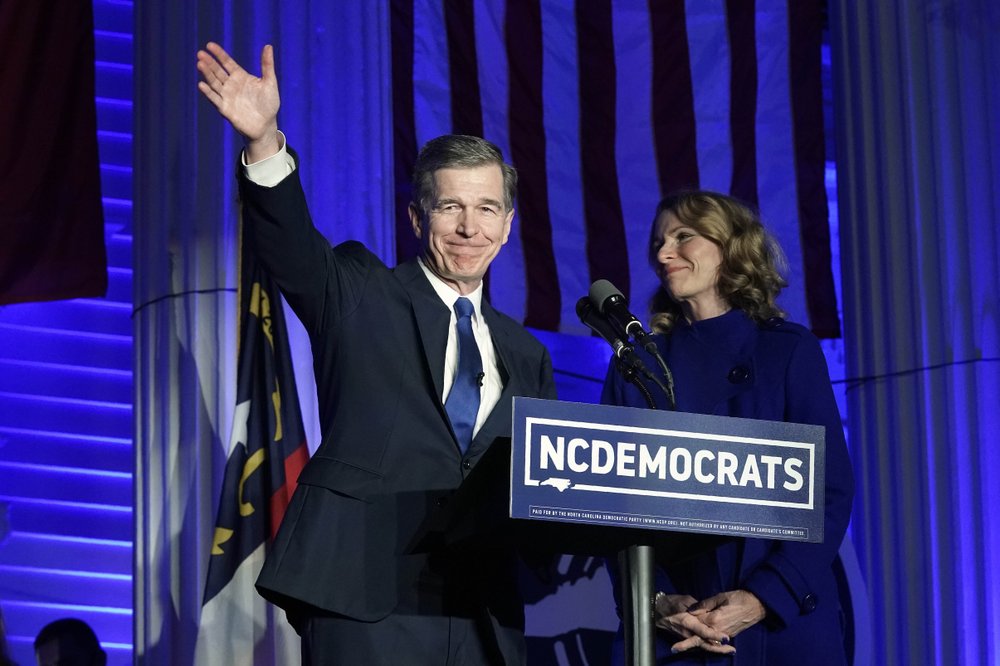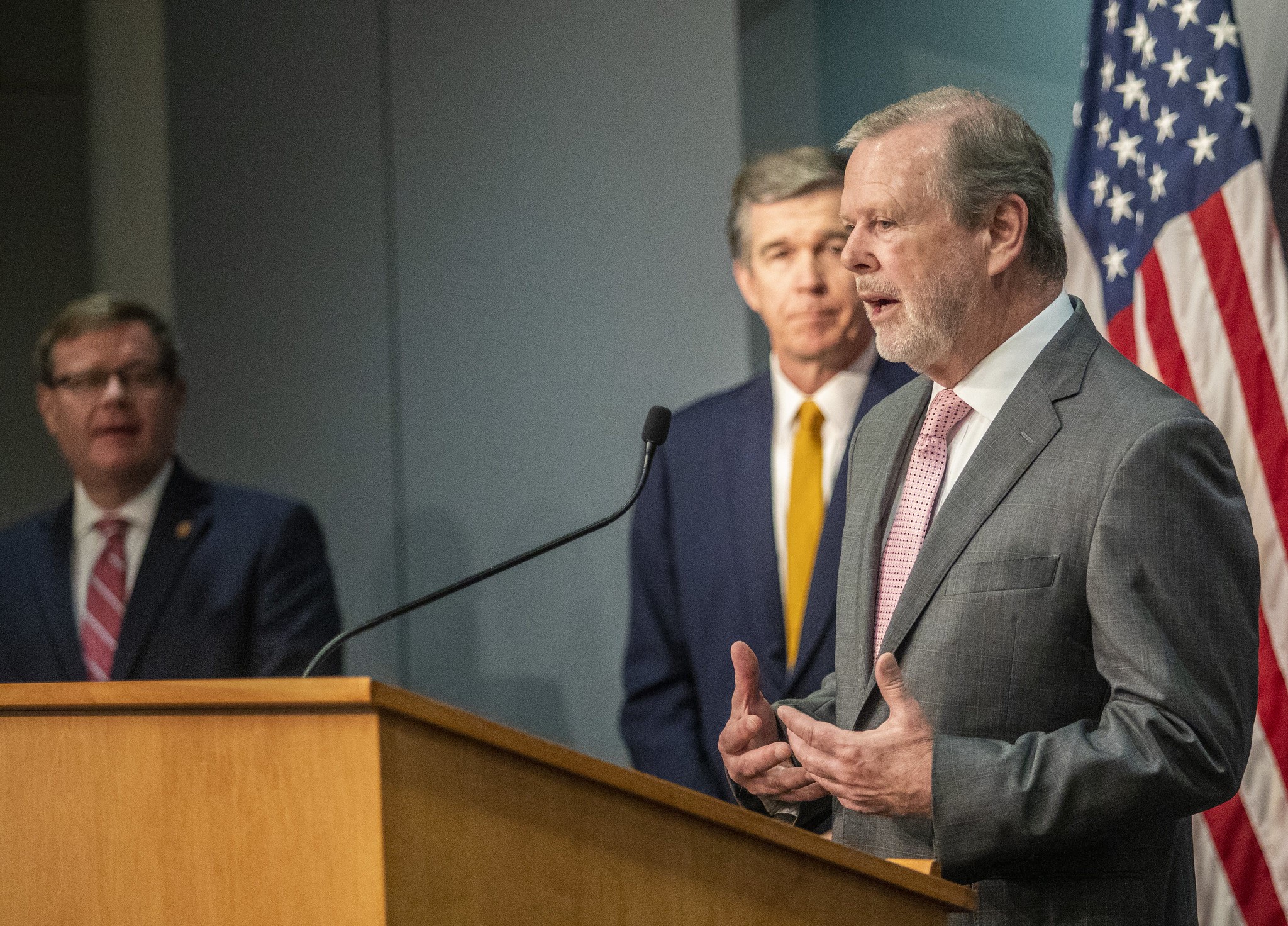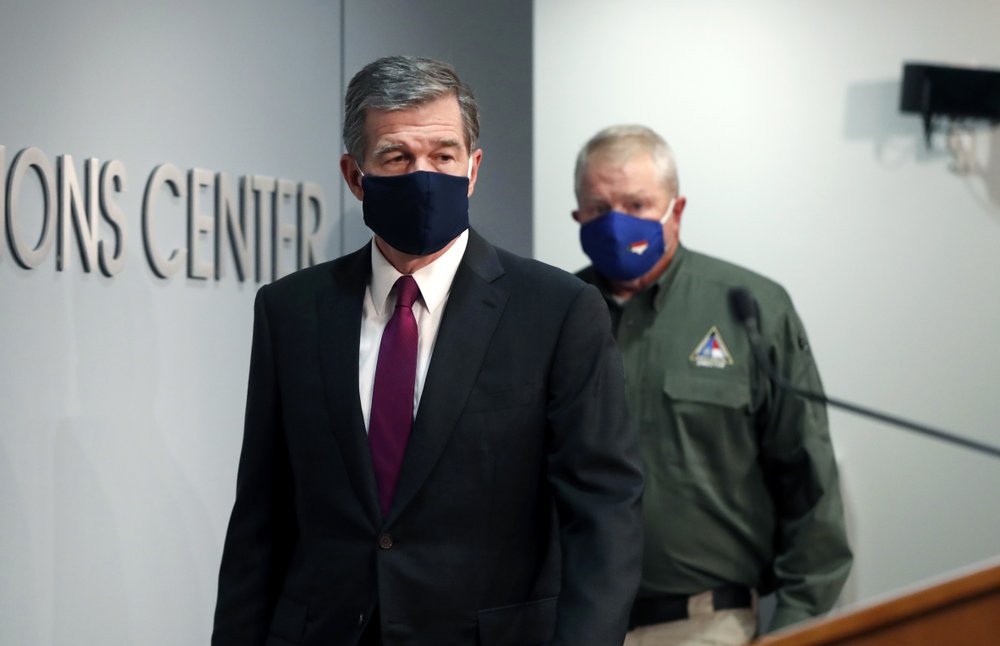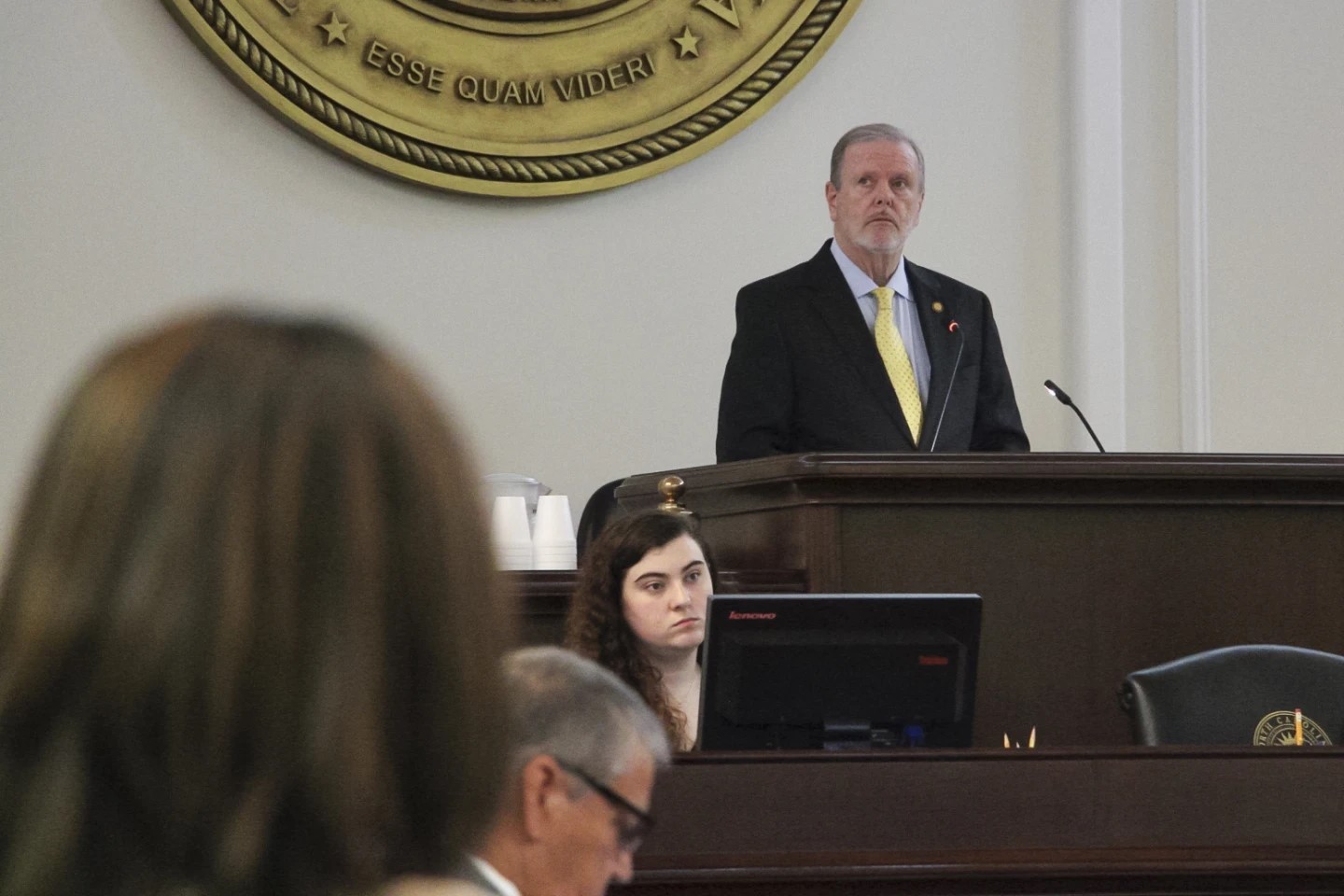The North Carolina legislature finalized a plan Thursday to spend $1.1 billion of the state’s remaining COVID-19 relief funds from Washington, including direct cash payments to nearly 2 million families.
The package, which also provides a $50 uptick in weekly unemployment benefits and more funds for virus testing, tracing and personal protective equipment, cleared its final legislative hurdle with a lopsided House vote.
The measure, which already cleared the Senate on Wednesday, now heads to Democratic Gov. Roy Cooper. Although many of his spending recommendations for this two-day work session were ignored by Republican legislative leaders, Cooper has not publicly criticized the measure and has shown no signs of vetoing it.
Money is also being spent to expand rural broadband, help struggling small businesses and to recruit poll workers on Election Day. Families with at least one child will receive by mid-December $335 in stimulus-style payments. While designed to help families with child care or tutoring school children struggling with online classes, the money can be used for anything.
“This package does so much good for so many people,” Rep. Donny Lambeth, a Forsyth County Republican and budget writer, said during House floor debate. “We are funding so much to help so many today — now.”
Like Wednesday in the Senate, several Democrats in the House complained they were left out while the bill was crafted. Democrats also pitched again the expansion of Medicaid to hundreds of thousands of uninsured people, which Republicans have refused for years.
Still, most Democrats joined all Republicans present in voting 104-10 for what the Senate passed.
“We’re just not doing enough for those that we can be helping,” said Rep. Marcia Morey, a Durham County Democrat who voted for the package. She cited the needs of people who could be evicted soon from their homes due to job losses, as well as city and county governments.
Cooper’s office did not immediately respond to an email Thursday seeking comment on the bill, finalized just before the General Assembly officially adjourned their two-year session at midday. All 170 legislative seats are on the November ballot. Cooper is also running for reelection.
“Some folks believe in this chamber we could have done better. Some members are here and are willing to stay longer and do more,” said House Minority Leader Darren Jackson of Wake County, who voted no. “Voters can decide for themselves why we didn’t.”
Republicans contend they have already done a great deal even before this week. During work sessions this spring, legislators allocated well over $2 billion in North Carolina’s $3.5 billion share of COVID relief funds.
More than $300 million that had been earmarked to replace state transportation and other tax revenues had to be repurposed this week because Congress did not alter rules to spend them in that fashion. The state’s share of federal funds have to be disbursed by the end of the year.
GOP leaders refused to take up Cooper’s proposal to spend $559 million in additional state revenues in part to give $2,000 bonuses to public school teachers and smaller one-time payments to other educators. Republicans said it was too risky to spend more state dollars as the pandemic continued. But they did locate $68 million in state money to respond to recent hurricanes and earthquakes in the mountains.
The final bill also makes education policy decisions. K-12 school districts won’t be penalized financially if their enrollment drops should families shift to alternative schooling. And the state’s two virtual public charter schools can enroll 3,800 more students this year. But Republicans also agreed to expand eligibility for children to receive taxpayer-funded scholarships to attend private schools.
The additional $50 weekly unemployment benefit would continue through the end of the year. Also on Thursday, the state Division of Employment Security said it had started distributing to displaced workers extended federal benefits of $300 a week mandated through an executive order by President Donald Trump. But that money only covers three weeks, initially.
Related Stories
‹

Cooper on Election Results: 'There Is a Lot of Status Quo'North Carolina Gov. Roy Cooper said in a news conference on Thursday that he will continue to push forward with his goal of expanding Medicaid at a time when voters decided to maintain GOP control of both chambers of the Legislature. “There is a lot of status quo, but I do think that my election, and […]

Cooper Seeks Big Debt Package, Pay Hikes, Medicaid ExpansionWritten by GARY D. ROBERTSON North Carolina Democratic Gov. Roy Cooper on Wednesday proposed a spending and borrowing spree by state government that he said is critical to fulfilling education, health care and infrastructure demands that were evident before the pandemic but have been exacerbated since. With state coffers filled with unspent funds and $5 billion […]

Financial Incentive for More Medicaid Draws Mixed ReactionA financial carrot for North Carolina to expand Medicaid to hundreds of thousands low-income adults is raising already elevated hopes among Democratic Gov. Roy Cooper and allies that the General Assembly will finally adopt it this year. But those aspirations remain uncorroborated by GOP leaders who remain wary of expansion or don’t see it happening. […]

NC House Gives Unanimous Ok To $1.7B COVID Relief MeasureWritten by GARY D. ROBERTSON The North Carolina House voted unanimously Wednesday to distribute another $1.7 billion in federal COVID-19 relief funds, with most going toward virus testing and prevention, public university campuses, child-care assistance and transportation projects. The bill, the latest in a series of measures allocating funds appropriated by Congress to the states, was on the […]

Handful of Races to Set North Carolina Legislature Rule, AgendaControl of the North Carolina General Assembly — which carries with it the leverage to shape current policies and draw district boundaries for the next decade — likely will come down to outcomes in about 15 closely contested House and Senate races. Democrats need to win six additional House seats and five more Senate seats […]
![]()
COVID-19 Money to Improve Internet Access for NC StudentsNorth Carolina’s state government is using federal COVID-19 relief dollars to purchase equipment so more public school students can access online classes and homework help. Gov. Roy Cooper announced that nearly $40 million would go toward funding a new partnership involving his administration. The project, called NC Student Connect, is designed to improve reliable internet […]

Cooper Says He'll Sign North Carolina COVID-19 Aid PackageNorth Carolina’s Democratic governor announced Friday that he will sign a Republican-authored plan to spend $1.1 billion of the state’s remaining federal COVID-19 relief funds on aid to families with children, unemployment benefits and efforts to fight the virus. Gov. Roy Cooper’s announcement came a day after he received the package from legislators. It includes […]

North Carolina Legislative Session Getting Close to EndNorth Carolina legislators could soon end a legislative session that’s been marked by dealing with the COVID-19 economic downturn and challenging Gov. Roy Cooper’s orders keeping many businesses closed due to the virus. The House and Senate scheduled floor meetings on Thursday. Senate leader Phil Berger has said he expected it to be the final […]
![]()
North Carolina Medicaid Expansion Advocates 'Mad' as Bill IdlesNorth Carolina remains among the dozen or so states that haven’t agreed to expand Medicaid to more of the working poor amid a lingering budget stalemate and continued skepticism among top Senate Republicans about the idea. The General Assembly met Tuesday for a session in which legislation related to health care access was among potential […]

Medicaid Expansion To Begin Soon in North Carolina as Governor Decides To Let Budget Bill Become LawWritten by GARY D. ROBERTSON North Carolina Gov. Roy Cooper announced Friday he would let the state budget bill coming to his desk become law without his signature, opening the way for Medicaid coverage for 600,000 low-income adults, with some receiving the government health insurance within weeks. The Democratic governor unveiled his decision on the two-year spending […]
›







